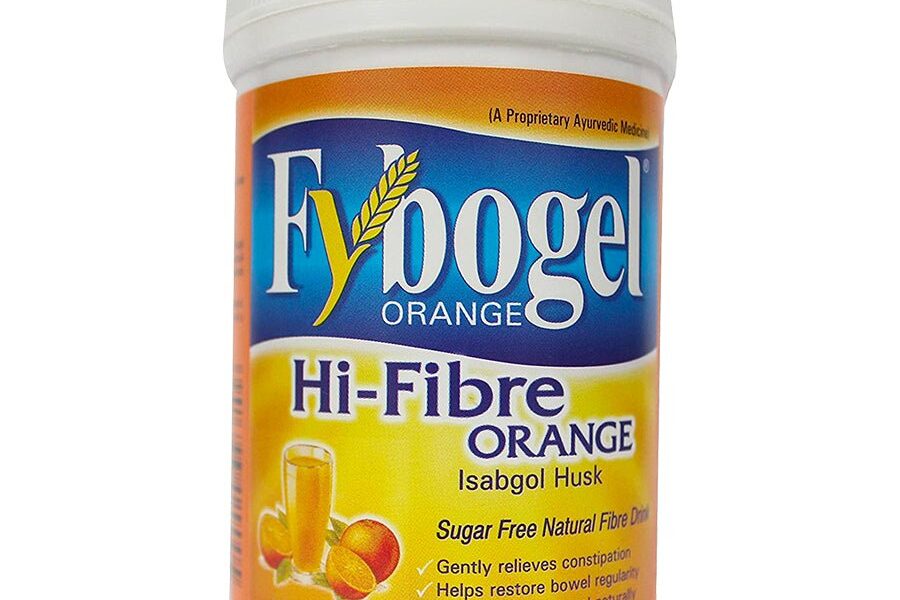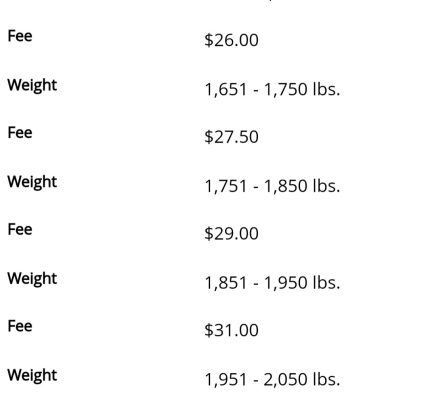Fybogel can be a helpful solution for constipation, but it’s not always the right choice. If you have a bowel obstruction, severe abdominal pain, or certain medical conditions, you should avoid taking Fybogel.
Knowing when should you not take Fybogel is crucial for your health. This fiber supplement can interact negatively with specific medications or lead to issues if not taken properly.
Before adding Fybogel to your routine, it’s essential to understand its limitations and consult your healthcare provider if you have any concerns. Taking the right steps ensures you keep your digestive system balanced and healthy.
When Should You Not Take Fybogel?
Fybogel is a well-known fiber supplement that can help alleviate constipation and promote regular bowel movements. However, like any medication or supplement, there are specific situations when you should avoid taking Fybogel. Understanding these circumstances can help you use this product safely and effectively. Let’s explore when you should not take Fybogel and delve into the reasons behind these recommendations.
Understanding Fybogel
Fybogel contains psyllium husk, a natural source of soluble fiber. It works by absorbing water in your intestines, which helps to soften your stool and makes it easier to pass. While Fybogel can be beneficial for many, it may not be suitable for everyone. Here are some key points to consider:
– **Purpose**: Fybogel is predominantly used to treat constipation and promote digestive health.
– **Form**: It usually comes in a powder form that you mix with water or in convenient sachets.
– **Dosage**: Following the recommended dosage on the packaging or that given by your healthcare provider is crucial.
Medical Conditions That May Exclude Fybogel Use
Certain medical conditions may make it unsafe to take Fybogel. If you have any of the following conditions, consult your doctor before using this product:
Gastrointestinal Obstruction
If you have a blockage in your intestines (intestinal obstruction), taking Fybogel could worsen your condition. This blockage prevents normal movement of food and stool through the digestive tract. Using Fybogel can lead to more serious complications, including:
– Bloating
– Severe abdominal pain
– Nausea and vomiting
Bowel Conditions
People with specific bowel conditions should also avoid Fybogel, including:
– **Crohn’s Disease**: This inflammatory bowel disease can cause severe symptoms. Adding fiber from Fybogel may irritate the intestines further.
– **Ulcerative Colitis**: Similar to Crohn’s, this condition involves inflammation of the colon and can be aggravated by fiber supplements.
– **Diverticulitis**: This condition, characterized by inflamed or infected pouches in the colon, requires a careful approach to fiber intake. Fybogel might increase the risk of complications.
Severe Dehydration
If you are experiencing severe dehydration, using Fybogel can lead to more complications. Fiber absorbs water, and if your body lacks sufficient hydration, it could result in:
– Increased risk of constipation
– Stomach cramps
– Difficulty in managing bowel movements
If you feel dehydrated due to illness or excessive exercise, it is best to wait until you rehydrate properly before considering Fybogel.
Allergies and Sensitivities
Some individuals may have allergies or sensitivities to the ingredients in Fybogel. If you have a known allergy to psyllium or other components of the product, avoid taking it as this can lead to serious allergic reactions. Symptoms of an allergic reaction may include:
– Rash
– Itching or swelling, particularly of the face, tongue, or throat
– Severe dizziness
– Trouble breathing
Always read the label and check with your healthcare provider if you are unsure about the ingredients.
Medication Interactions
Fybogel can interact with other medications, which may affect how well they work or increase the risk of side effects. It is crucial to discuss any medications you are currently taking with your doctor. Here are some common medication types that may interact with Fybogel:
Antibiotics
Psyllium can bind to certain antibiotics, making them less effective. If you’re taking antibiotics, consult your healthcare provider to find the right timing for taking Fybogel.
Diuretics
If you’re on diuretic medications to help manage conditions like high blood pressure, the combination with Fybogel can lead to further dehydration. Monitor your fluid intake and consult with your doctor for proper guidance.
Blood Sugar Medications
If you have diabetes and are taking medications to control your blood sugar, Fybogel might alter how your body absorbs these medications. This could lead to unexpected changes in your blood sugar levels, so ensure to check with your doctor.
Age Considerations
Certain age groups may also need to exercise caution when taking Fybogel. Here’s what you need to consider:
Children
Fybogel is not generally recommended for young children unless specified by a healthcare professional. Their digestive systems are still developing, and adding fiber can cause discomfort and excessive gas.
Older Adults
For older adults, the risk of dehydration and other gastrointestinal issues increases. If you’re elderly and considering Fybogel, discuss it with a doctor who can evaluate your overall health and medication regimen.
Proper Usage of Fybogel
If you determine that it is safe for you to use Fybogel, here are some important tips for making the most of this fiber supplement:
- Follow Dosage Instructions: Always adhere to the recommended dosage provided on the label or as directed by your doctor.
- Drink Plenty of Water: Since Fybogel works by absorbing water, ensure you drink enough fluids to help it function effectively.
- Start Slowly: If you are new to fiber supplements, consider starting with a smaller dose to help your digestive system adjust.
- Monitor Your Response: Keep track of how your body reacts after starting Fybogel. If you notice any adverse effects, stop using it and consult your healthcare provider.
Alternatives to Fybogel
If you determine that Fybogel is not right for you, there are alternatives to consider for managing constipation:
Dietary Changes
Increasing your intake of fruits, vegetables, whole grains, and legumes can naturally boost fiber without the need for supplements. Some high-fiber foods include:
– Apples
– Bananas
– Carrots
– Oats
– Beans
Other Fiber Supplements
There are various fiber supplements available that might be more suitable for your needs. Some options include:
– **Methylcellulose (Citrucel)**: A non-allergenic fiber supplement that may be easier to tolerate for some.
– **Wheat Dextrin (Benefiber)**: This option dissolves in liquids and may be gentler on the digestive system.
– **Inulin**: A soluble fiber found in some vegetables that can promote gut health.
Stool Softeners
If you primarily face issues with hard stools, stool softeners may be more beneficial. These medications help soften the stool, making it easier to pass.
Recognizing the Need for Medical Advice
If you experience ongoing constipation or related issues, it’s essential to seek medical advice. Your doctor can help identify underlying causes and recommend appropriate treatments. Do not hesitate to reach out to a healthcare professional if you encounter any of the following:
– Consistent abdominal pain
– Persistent constipation lasting more than a week despite treatment
– Changes in your bowel habits accompanied by other concerning symptoms
Knowing when to avoid Fybogel is crucial for ensuring you use it safely and effectively. By considering medical conditions, allergies, medication interactions, and age, you can make informed decisions regarding your digestive health. Always consult with a healthcare provider if you have questions or concerns. Remember, prioritizing your health is essential, and there are alternatives available for managing constipation if Fybogel isn’t right for you.
Psyllium Husks, Uses, Dosage and Side Effects
Frequently Asked Questions
“`html
Can you take Fybogel if you have a bowel obstruction?
No, you should not take Fybogel if you have a bowel obstruction. Fybogel is a fiber supplement designed to relieve constipation by increasing bowel movements. If you have a blockage in your intestines, taking Fybogel can worsen the situation and lead to serious complications.
Is it safe to take Fybogel if you are allergic to psyllium?
If you have an allergy to psyllium, you should avoid taking Fybogel. Psyllium is the primary active ingredient in Fybogel, and an allergic reaction can lead to symptoms such as itching, swelling, or difficulty breathing. Consult your healthcare provider for alternative options if you have this allergy.
Should pregnant or breastfeeding women avoid Fybogel?
Pregnant or breastfeeding women should consult their healthcare provider before taking Fybogel. While it is generally considered safe, individual circumstances may vary, and your doctor can provide personalized advice based on your health needs.
Can people with kidney problems use Fybogel?
Individuals with kidney problems should consult their healthcare provider before using Fybogel. The fiber may affect fluid balance and electrolytes, which can be a concern for those with renal issues. Your doctor can help determine if it is safe for you.
Is it advisable to take Fybogel if you are currently on certain medications?
If you are on specific medications, particularly those for managing diabetes or blood pressure, you should talk to your doctor before taking Fybogel. Fiber supplements can impact the absorption of some medications, so it’s essential to ensure that Fybogel won’t interfere with your treatment.
“`
Final Thoughts
Fybogel can be beneficial for many, but certain situations call for caution. When should you not take fybogel? Avoid it if you have a bowel obstruction or severe abdominal pain, as it can worsen these conditions.
You should also refrain from using fybogel if you experience an electrolyte imbalance or are allergic to any of its components. Always consult your healthcare provider if you’re unsure about its suitability for your situation. Prioritizing your health is essential when considering any supplement.





